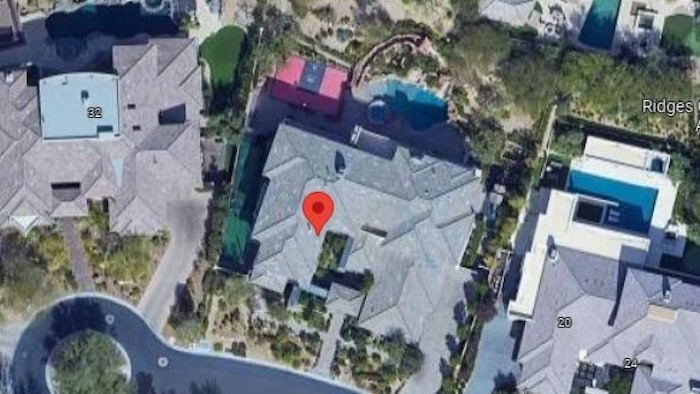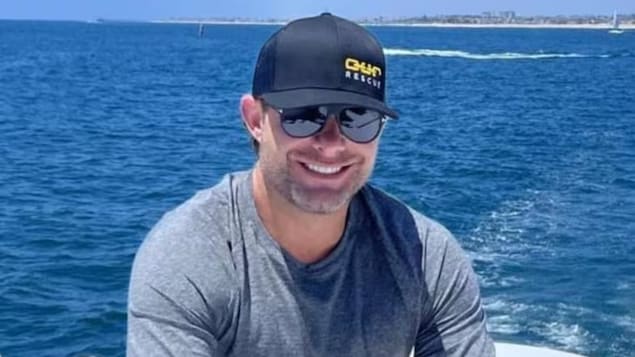A lavish Las Vegas property owned by alleged Ponzi schemer Greg Martel will be sold for $5.1 million US this week after a U.S. court authorized the deal and agreements settling opposing claims on the home.
But once the dust settles on the sale of the seven-bedroom, eight-bathroom, 9,221-square-foot house, it’s unlikely any of the money recovered will reach the many hundreds of people who lost money investing with Martel.
For one, the property has an outstanding mortgage of about $4 million US, according to receiver and trustee PricewaterhouseCoopers (PwC).
In addition, PwC needs to pay back an investor who funded its legal efforts in the United States to the tune of $400,000 Cdn. PwC also says it needs to pay itself after racking up a bill of over $1 million Cdn investigating Martel, according to documents posted on its website (new window).
Martel is the disgraced Victoria, B.C., mortgage broker at the centre of an alleged financial fraud run through his company, Shop Your Own Mortgage (SYOM), also known as My Mortgage Auction Corp.
According to the latest estimate, he owes 1,300 investors $312 million Cdn, in what an expert intimate with the details of the case said has all the hallmarks of a Ponzi scheme.
SYOM collapsed last year amid a flurry of lawsuits filed by investors. The claims were consolidated by the court under a receivership order in May of 2023 and PwC was appointed receiver with the duty to recover money and assets of Martel and his company to pay back jilted investors.
The Las Vegas property is one such asset — and a contentious one at that — requiring many months of legal machinations on both sides of the border.
In order to seize and sell the Las Vegas property, an agreement had to be reached between PwC and a group of creditors led by American Daniel Castellini, who lost $2 million investing with Martel.
Tracked down in Thailand
A sworn declaration submitted in U.S. court by PwC senior vice-president Neil Bunker detailed how in September of last year, a private investigator hired by Castellini tracked Martel down in Thailand where he was hiding out.
The investigator arranged for Thai authorities to detain Martel on an expired tourist visa, before cutting a deal that saw Martel transfer title of the Las Vegas property to Castellini, along with two Teslas and a substantial
amount of cash.
According to Bunker, the deed for the Las Vegas property was secured through audio-visual communication on Aug. 29, 2023. Martel was released from Thai custody the next day and ordered to leave the country.
After learning that Martel had transferred the Las Vegas property to Castellini, PwC successfully argued in U.S. court that the powers previously granted in Canadian court gave PwC primary authority to recover and sell the home.
PwC then struck a deal with Castellini that says once PwC completes the sale of the Las Vegas property, Castellini will be paid $28,000 from the proceeds. The reimbursement is for certain expenses [Castellini] represents were incurred investigating Martel and his business dealing,
according to court documents.

Google Earth view of 28 Quiet Moon Lane, the seven-bedroom, eight-bathroom, 9,221-square-foot luxury home in Las Vegas owned by Greg Martel.
Photo: (Google)
Court documents also say Castellini has agreed to co-operate with PwC by sharing the name of the investigator who went to Thailand, as well as all reports and information the investigator provided.
After leaving Thailand, Martel went to Dubai, according to PwC. His whereabouts are unknown.
The Las Vegas property is being sold to Kirk and Janette Mendez, who had also filed a claim on the home.
The couple signed a lease agreement with Martel in February of last year, about the time SYOM was blowing up. They agreed to pay $27,500 per month, with an option to buy the home outright for $5.1 million in February of 2024.
The Mendezes paid Martel for the year upfront but court documents say it appears he absconded with all the money.
CBC has reached out to Castellini and the Mendezes for comment.
According to PwC, two other properties owned by Martel were sold late last year as part of the asset recovery effort.
A heavily mortgaged house in Victoria sold for $2.47 million in December, resulting in $109,606 in net equity for the creditor pot. And an Ontario property Martel co-owned with a former spouse sold for $310,000, resulting in $82,698 in net equity recovered.
Last September, Martel was found guilty of contempt of court and warrants for his arrest have been issued in Canada and the U.S.
Largest Ponzi fraud in Canadian history?
Martel and SYOM were supposedly in the business of pooling investor money to provide short-term bridge loans to real estate developers, but so far investigators have found no evidence that any bridge loans were ever extended.
Martel attracted investors by promising sky-high rates of return, sometimes as high as 100 per cent on an annualized basis.
Bunker said previously that the absence of company records point to the concept that SYOM was a Ponzi scheme orchestrated by Martel.
If true, it would put him in the running for perpetrating Canada’s largest Ponzi fraud ever.
In 2017, two Alberta men were found guilty of fraud and theft (new window) after bilking investors out of a combined total of between $100 million and $400 million. At the time the RCMP characterized the crime as the largest Ponzi scheme in Canadian history.
A Ponzi scheme is where people hand over money believing it will be used in legitimate investments, often with the promise of large returns. Behind the scenes, the money actually goes toward paying earlier investors who have also been promised profits.
Karin Larsen (new window) · CBC News
















